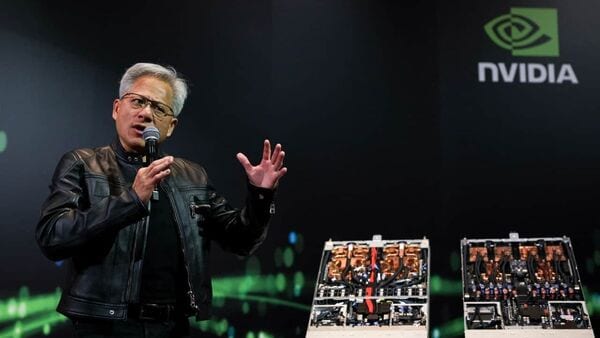Nvidia CEO Warns US Tech Restrictions on China Could Backfire ‘Even in Worse Ways’
Key Takeaways
- Nvidia’s China market share dropped from 95% to 0% due to export restrictions
- Jensen Huang warns policies harming China could damage US economy more severely
- Half of world’s AI researchers are in China, creating strategic disadvantage
- Trade tensions continue with rare earth export limits and tariff escalations
Nvidia CEO Jensen Huang has issued a stark warning that current US restrictions on technology exports to China could severely harm American economic interests and technological leadership. In a recent interview, he called for more nuanced regulations, stating that policies designed to hurt China might backfire on the US “even in worse ways.”
Huang emphasized the need for careful consideration before implementing policies that could damage international relationships. “Before we leap towards policies that are hurtful to other people, take a step back and maybe reflect on what are the policies that are helpful to America,” he advised policymakers.
Devastating Market Impact
The export restrictions have had catastrophic consequences for Nvidia’s business in China. Huang revealed the company’s market share has collapsed from approximately 95% to complete elimination from the Chinese market.
“I can’t imagine any policymaker thinking that that’s a good idea, that whatever policy we implemented caused America to lose one of the largest markets in the world,” Huang stated. Nvidia now operates as being “100% out of China” and bases all financial projections on this reality.
Strategic Importance of China Access
Despite the current political tensions, Huang stressed the critical importance of maintaining connections to China’s technology ecosystem. He noted that approximately half of the world’s AI researchers are based in China, creating a significant strategic consideration.
“I think it’s a mistake to not have those researchers build AI on American technology,” Huang added, highlighting the long-term implications for US technological influence.
Escalating Trade Tensions
The technological standoff began with the Biden administration’s 2022 restrictions on advanced AI chip exports to China. Nvidia responded by designing compliant processors, but the regulatory landscape remained unstable with additional restrictions and temporary licensing arrangements.
China retaliated by limiting rare earth exports—critical materials for advanced technology manufacturing—prompting the US to impose additional 100% tariffs on Chinese goods. Trade talks are scheduled to resume ahead of a planned meeting between US and Chinese leaders later this month.
Huang remains hopeful for policy changes, describing China as “the second-largest computer market in the world” and emphasizing the importance of US participation in this vibrant ecosystem.




